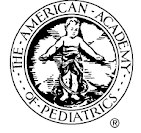RSV Research
The National Institute for Health and Care Research (NIHR) are, along with the pharmaceutical company Sanofi, conducting a study called the Harmonie study looking at how well a one-off injection protects babies from RSV (Respiratory Syncytial Virus). Children up to 12 months of age and entering their first RSV season, will be given Nirsevimab, a monoclonal antibody. RSV is a leading cause of hospital admittance for infants, and this will be the biggest study looking to look at this preventative drug.PolioPolio has been found in sewage in London, as well as in New York and Israel. Read this BBC explainer to find out what polio is, how it is spread, and how it has been discovered again.
Health Inequalities in England
The Health Foundation have published a study showing that people living in the most deprived parts of England are diagnosed with serious illness earlier and die sooner than their peers in more affluent areas. They used linked hospital and primary care data to examine socioeconomic, regional and ethnic variations in the prevalence of diagnosed long-term illnesses including diabetes, cardiovascular disease, chronic pain, and mental health conditions such as anxiety and depression. This was especially true of people with Pakistani, Bangladeshi and black Caribbean backgrounds.
Whole-Genome Sequencing for Newborn Babies
The Lancet reports on the UK Newborn Genomes Programme, which was created by Genomics England to oversee plans to undertake whole-genome sequencing of up to 200 000 newborn babies. Working with the NHS, they will start recruiting in 2023, examining whether screening healthy babies for arange of rare genetic conditions could improve outcomes. The requirement for screening is that it should only be done if there is strong evidence that the selected variant causes a condition that takes hold in childhood, would adversely affect the child's health or wellbeing if left untreated, and for which there are effective and accessible interventions or treatments available.Harmful Sexual Behaviour
NSPCC Learning has released the latest blog from the why language matters series. This blog looks at harmful sexual behaviour (HSB), the importance of focusing on a child’s actions rather than labelling them as an abuser, and the impact language can have on professionals’ perceptions and a child’s self-identity.
Children's Social Care
The Children's Society have written a blog which explains what children's social care is in a simple, engaging way. They want to highlight how cuts local authorities and under-investment in children's services over the last decade have led to children and young people being more likely to suffer abuse, neglect or exploitation inside and outside the home.
Things to do in Sheffield in September
Sheffield Ghost Walk
Get spooky early this year with Strange Sheffield Ghost Walk, which is happening on the 2nd and 16th September. There will be spooky stories, ghostly encounters and plenty of strange tales with a good dose of local history too. Adult tickets cost £7.50 (over 14s), under 14s tickets are £5 - children can attend at their parents' discretion. If you're in South Sheffield you can also check out the Graves Park Ghost Walk - Bunting Nook by the side of the Park is said to be Sheffield's most haunted place.Sheffield Showcase
There is heaps going on in the first weekend in September to highlight the masses of cultural activity that takes place in Sheffield. It'll feature film screenings, music performances, art exhibits, family-friendly workshops, and more. Try circus tricks, community gardening or go and see some jazz. There is something for everyone - check out the programme here.
Recipe of the month'Tis the season for bramble picking. If you don't scoff them all as soon as you've picked them, you can put your blackberries in a pie, which is what I hope to be doing soon - I might skip the latticing though!































